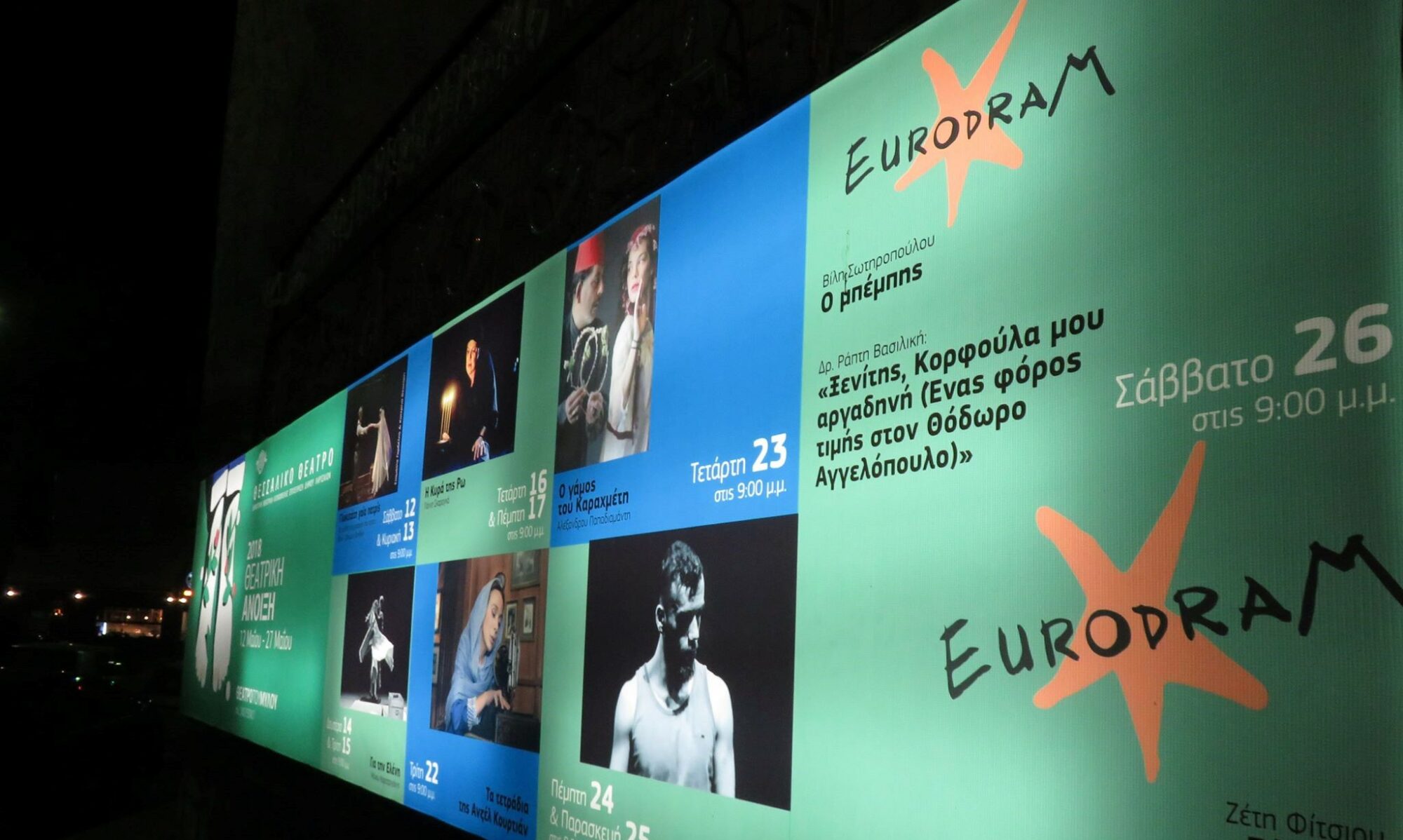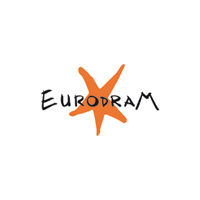Eurodram is a European theatre translation network which uses European, Mediterranean and Central Asian languages. Its main objective is to make known to both theatre professionals and the wider public, work which remains largely unpublished, paying particular attention to linguistic diversity. For this season 2015-16, committees are tasked with selecting texts from their own languages for recommendation to be translated into another.
The Committees
The network is organised into roughly 30 language-based reading committees, totalling around 300 people. Anyone wanting to pool resources and who is competent in theatre and in translation is welcome to join a committee. Any playwright or translator is welcome to submit their own material according to the guidelines set out below.
All those joining are ratified according the guidelines established by each committee; generally very straightforward. All suggestions for new committee members are welcome. The network aims to achieve a balance between men and women; emerging and established professionals; practitioners and academics; those working for institutions and freelancers; locals and those diasporic. Ideally in the committee make-up you will see theatre publishers, playwriting competition organisers, playwriting festival producers and playwright union reps.
Everyone undertakes to acquire and circulate material among their own committee as well as to other playwrights, agents, publishers, translators and playwrights’ organisations. Everyone aims to acquire, circulate and read as much as possible If the playwright requires one, those most willing and/or best disposed are asked to make available a short (anonymous) script report.
Discussion Groups
Each network member is signed up to a an email list. These lists are semi-moderated; only network members can post and messages received centrally are just circulated to the appropriate committee. Each new member is introduced to those on the committee list by MEO and asked to present themselves. With the exception of email sent from the Central MEO Co-ordinator, emails are exchanged only in the language of the committee, (in this case English)
Resource Bases
Alongside the network of committees is a network of locally based resources. These places make libraries of translations available to the public, as well as placing relevant network information on their websites. For more on this click on <lieux ressources>
Co-ordination
Each Committee is co-ordinated by one of its members, according to the way in which that committees want to manage it. The Co-ordinator ensures that the objectives of the network are well understood by the members of his/her Committee. The aim is to collect and put into circulation the largest number of possible texts; to recruit new members, notably among translators, and to ensure a certain renewal of the Committee; to organise exchanges, preparatory meetings and votes on the selections. The Co-ordinator ensures that the results are sent in time to MEO HQ, along with the required accompanying materials (biography, summary, extract…). The Co-ordinator also promotes more widely the selection of his/her Committee, for example by the drafting and dissemination of a press release. Where possible this can extend to other committees. Co-ordinators are invited to participate in the ‘Europe of theatres’ festival by organizing an event. They are also invited to the annual general meeting. If necessary the MEO can support the Co-ordinator in his/her search for funding for transportation and living expenses for the latter.
Script Submission
Scripts can be submitted by: playwrights, translators, publishers, agents, etc.
For original scripts, proposals must include the complete original script, a brief biography of the playwright, a fact sheet (date and place of writing, number of characters, references to any awards and previous productions) as well as any additional information deemed interesting.
NB: In relation to original scripts written in French, only scripts already selected by a professional reading committee can be proposed, or on the recommendation of a member of the French Committee.
For translations, proposals must include the complete translation or extract (typically 1/5th of the script), an analytical summary of the work, a brief biography of the playwright a fact sheet (date and place of writing, number of characters, references to any awards and previous productions) as well as any additional information deemed interesting. It goes without saying, that we need the original language and the name of the translator…
or if in doubt, email it to contact@eurodram.org MEO general co-ordination. Members of the committees should send texts directly to the Committee’s list.
The only deadline is the date by which selections must be made. (See below) The sooner proposals are submitted, the larger the traffic and the number of readers for the script in question.
The scripts are emailed to committees according to the language in which submitted. For example, a text written in Macedonian will be transmitted to the Macedonian Committee. The translation of this text in Lithuanian will be forwarded to the Lithuanian Committee.
The language of the text is the main reference point, in theory, regardless of the nationality or place of residence of the playwright. However, the network is not aimed at benefiting those from regions outside Europe / Mediterranean / Central Asia. Submissions will be considered on a case by case basis, in conjunction with the relevant Committee.
A playwright can submit as many scripts as s/he wishes. It is however advisable to limit yourself to one set of submissions per year …
Other than in exceptional circumstances, only recent works are accepted. Scripts must be sent directly to the co-ordinator of the committee concerned, or the overall Eurodram coordinator if necessary (see contacts below and in the list of committees)
http://www.sildav.org/eurodram/comites-linguistiques
Selection
Each Eurodram Committee makes two alternating selections over two years, on a biennial basis, to a maximum of three scripts each. There cannot be more than one script from the same playwright in the selection. The alternating selection is:
-even years: selection of the dramatic works of their language (in this case English) to translate into another European language (translation out of);
-odd years: selection of the dramatic works of other European languages to translate into their own language (translation in to).
Voting
Each Member of the Committee has 6 points to give. In theory you give 3 points to the first script of your choice, 2 to the second and one to the third. But all combinations are possible, with a minimum of 1 and a maximum of 3 points per text. For example, 1 point to 6 different texts, or 2 points in three texts, etc. Each Member can change their mind as many times as desired, until the deadline.
Dates
Deadline for receipt of scripts: December 31st 2015
Intermediate meeting: January 2016
Shortlisting Meeting: February 2016
Selection deadline: March the 15th, 2016
General Assembly: Istanbul, May 2016
Responses
Owing to lack of resources, those submitting scripts are only re-contacted personally in the case of a positive response. The results are published online in the weeks following the decision.
Each playwright may request a script report. These should be transmitted anonymously.
About 300 scripts circulate each year throughout the network. The scripts submitted to the French Committee in 2014 have been read by an average of 10 people.
What happens next?
These selections (unfortunately) do not result in payment.
The selection of an original script is an invitation to those translating from his/her mother-tongue to get cracking. The selection of an extract translation is an invitation to the translator to follow it up. The selection of a complete translation is an invitation to directors and publishers to produce / publish it.
The network works in partnership with many differently structured organisations, allowing it to be a dynamic part of a complex melange of playwrights, translators and other creatively curious partners at international level.
Overall Eurodram co-ordination contact@eurodram.org
Resources :
http://oberonbooks.com/modern-plays
http://www.nickhernbooks.co.uk/new-titles.html
http://www.bloomsbury.com/uk/series/modern-plays/

